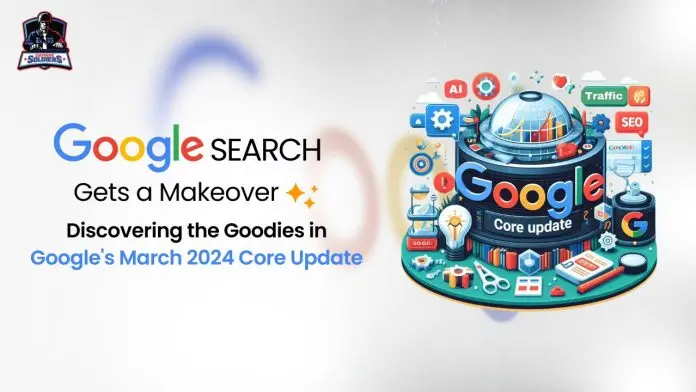Google algorithms are the complex system of rules and procedures that Google designs to define how web pages should appear on its search engine result pages (SERPs). These algorithms are continuously improved and upgraded to provide the most relevant and accurate information to users when replying to their search queries.
Google’s core algorithms look at many factors, such as relevance, authority and quality of web pages. Some critical components of Google algorithms include :
1. Relevance: By way of assessing the relevance of web pages to specific search queries, algorithms evaluate keyword use, content quality, and topical relevance as critical factors.
2. Authority: The authority of a web page in Google query is evaluated according to the number and quality of incoming links from trustworthy websites. Pages that have more authoritative backlinks are more likely to rank higher in search engine results.
3. Quality: The Google algorithms assess the entire quality of the web page, considering factors like user engagement metrics (time spent on page, bounce rate), spelling and grammar & multi-media presence.
4. Freshness: Google highly values fresh and timely information, particularly for topics that involve current news and trends. Websites that frequently update their content can rank higher.
5. User Experience: In addition, Google’s algorithms consider a lot of things connected to user experience, such as page loading speed, mobile friendliness, and secure browsing. Sites that provide easy and comfortable navigation are most likely to rank higher.
6. Local Relevance: When it comes to location-based searches, Google’s algorithms take into account the geographical proximity of businesses and services to the user’s location, including the level of accuracy and consistency of business information on various internet directories.
Google Algorithms are frequently updated in response to changing user behaviour, technological advancement and exposure to new content formats. Updates such as BERT (Bidirectional Encoder Representations from Transformers) and RankBrain have incorporated machine learning and language processing, making it possible for Google to read and interpret search queries in a broader context.
In essence, Google algorithms determine the exposure and availability of web information, directing the digital landscape and affecting business, marketing, and content creation globally.
Google’s March 24th, 2024 Core Update: Simplifying Search Quality
Google presented a significant update to its search algorithm, which was created to tackle low-quality content and maintain a good user experience. Being called the “March 24th, 2024 Core Update,” the initiative is the largest one Google has implemented recently.
Focus on Helpful Content:
The critical ranking system of Google currently gives more weight to content that users consider to be genuinely informative and worth reading. This shows that Google is consistently working to promote content that follows simple principles such as:
- Expertise: Written by people who had not only proved they could know a particular subject inside-out.
- Authoritativeness: A credible website with high online credibility is the kind of content to prevail.
- Trustworthiness: The data that is correct, exact, and improvable.
Reduction of Unhelpful Content:
The upcoming update in March 2024, according to Google’s forecasts, is expected to bring a decrease in the search results of at least 40% of the websites providing “unhelpful” content such as that to searchers. This includes:
- Low-quality content: Content that needs to be more insightful, original, or authored, especially to be of low value to the users, such as irrelevant information.
- Thin content: Irrelevant content that has been overly copied and pasted, thus making it worthless.
- Automatically generated content: AI-generated content that does not comply with editorial oversight or human intervention.
Combating Spam:
In addition to the core update, Google announced new spam policies focusing on the elimination of the manipulative tactics used to boost search results artificially. These include:
- Scaled content abuse: Tools such as mass publishing of content across many sites can be implemented.
- Site reputation abuse: Activities that are designed to unnaturally increase the status of a website by using deceptive methods.
- Expired domain abuse: Manipulating expired domains in order to transfer visitors to irrelevant websites.
Impact and What to Do:
The website owners and the content makers must have an expectational attitude towards the search ranking changes since Google implements these changes. Here are some recommendations:
Focus on creating high-quality, informative content: Make sure that your content provides additional value to the user and addresses their particular problems.
Maintain website trustworthiness: Establish your website as a credible source by providing accurate and well-researched information.
Avoid manipulative tactics: Avoid techniques such as keyword stuffing or link buying, which will negatively affect your website’s ranking.










